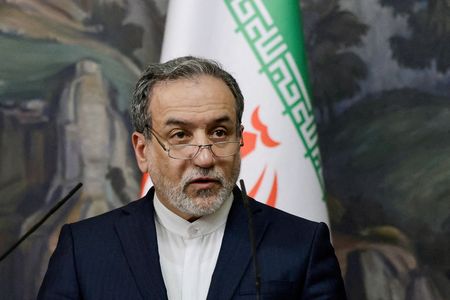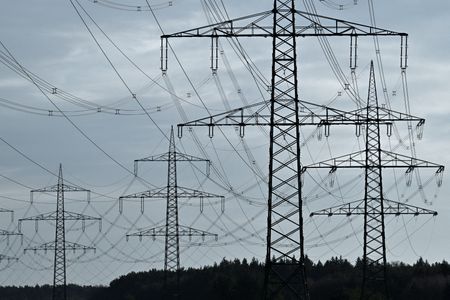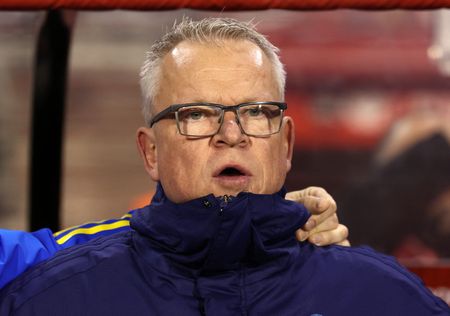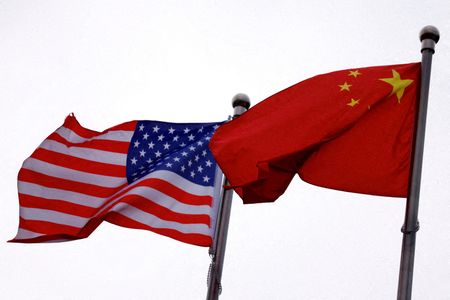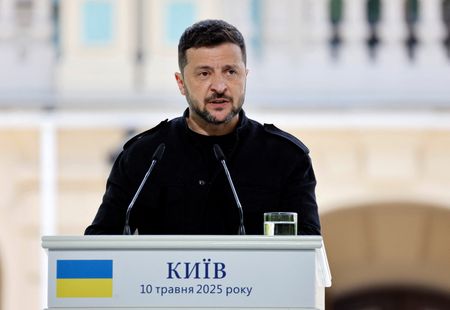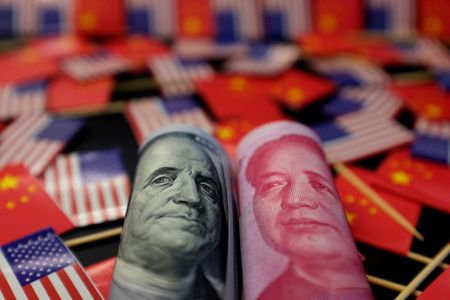By John Irish
PARIS (Reuters) – Iran’s foreign minister warned Britain, France and Germany on Monday that a decision to trigger a U.N. mechanism reimposing sanctions on Tehran could lead to an irreversible escalation of tensions.
Under the terms of a U.N. resolution ratifying a 2015 nuclear pact, the three European powers could reimpose United Nations sanctions against Tehran before October 18, known in diplomatic circles as the “snapback mechanism”.
“Iran has made its position clear. We have officially warned all JCPOA (nuclear pact) signatories that abuse of the snapback mechanism will lead to consequences — not only the end of Europe’s role in the agreement, but also an escalation of tensions that could become irreversible,” Foreign Minister Abbas Araqchi wrote in a column in French weekly magazine Le Point.
U.S. President Donald Trump exited Tehran’s 2015 nuclear accord with six world powers in 2018 during his first term and reimposed tough sanctions that have devastated Iran’s economy.
The European powers are not part of current negotiations between Iran and the United States, the fourth round of which ended in Oman on Sunday.
But the three powers have sought to coordinate closely with Washington with a view to whether and when they should use the snapback mechanism to raise pressure on Iran over its nuclear programme.
Trump said on Monday that Iran was “talking intelligently.”
“We want Iran to be wealthy and wonderful and happy and great, but they can’t have a nuclear weapon, it’s very simple. So I think they understand that I mean business and I think they’re being very reasonable thus far,” he told reporters.
Talks between the so-called E3 and Iran in Rome earlier in May were postponed. Araqchi said that a meeting between Iran’s deputy foreign minister and E3 counterparts had since taken place, describing them as a “promising, but fragile start.”
France’s foreign ministry declined to comment. The British and German foreign ministries were not immediately available to comment.
According to diplomats and a document seen by Reuters, the E3 countries may trigger a snapback by August if no substantial deal can be found by then. The window closes on October 18.
Relations between the E3 and Iran have worsened over the last year despite sporadic meetings, against a backdrop of new sanctions imposed on Tehran over its ballistic missile programme, its detention of foreign citizens and support for Russia in its war against Ukraine.
Iran, which has long said its nuclear programme is peaceful, has breached the 2015 pact’s nuclear curbs since 2019, including “dramatically” accelerating its enrichment of uranium to up to 60% purity, close to the roughly 90% level that is weapons-grade, according to the U.N. nuclear watchdog.
It denies it is seeking nuclear weapons.
(Reporting by John Irish; Additional reporting by Steve Holland in Washington; Editing by Ros Russell)

